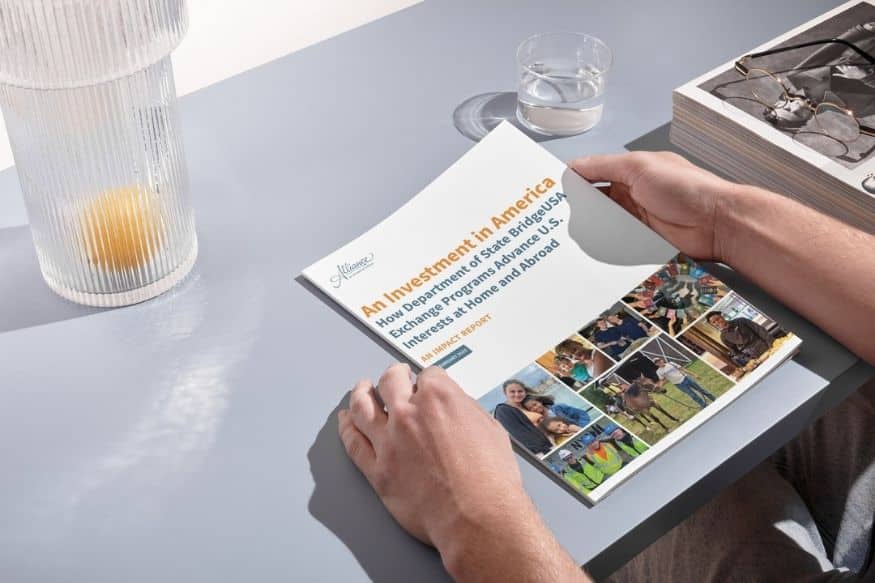“In 1492 Columbus sailed the ocean blue” – A popular rhyme taught to many young American students across the U.S. to help them remember the year in which the Italian explorer, Christopher Columbus, arrived in the Americas.
The purpose of Columbus Day is to commemorate the Italian explorer’s October 12, 1492 arrival to the Americas. The holiday falls on the second Monday in October and is celebrated by many Americans. While the man who “sailed the ocean blue” is credited with “discovering” the Americas, this accomplishment and the holiday that recognizes it is surrounded by controversy.
Who was Christopher Columbus?
Christopher Columbus (Italian, Cristoforo Colombo; Spanish, Cristóbal Colón) was an Italian explorer born in Genoa in 1451. He began sailing at the age of 14 and participated in many trading trips around Europe. In 1485 he left for Spain to try and gain support for an expedition to explore the western trade routes. Columbus tried for eight years to get Spanish monarchs King Ferdinand and Queen Isabella to supply him with ships and money to make this journey. Columbus promised to explore Asia and bring back gold, spices, and silk to the Spanish crown and spread Christianity to these far parts of the world. They finally agreed to fund the expedition, and Columbus left Spain on August 3, 1492 with three ships in his fleet, named the Nina, the Pinta, and the Santa Maria. After a grueling five weeks, which was much longer than he had originally anticipated, they saw land. Columbus and his crew arrived in what are now known as the islands of Cuba and Hispaniola, not Asia.
Columbus Day was originally celebrated in New York City in 1792, 300 years after Christopher Columbus landed in the Americas. In 1934 U.S. President Franklin Delano Roosevelt named Columbus Day a national holiday and set the date for the holiday on October 12th. Then in 1971, the date was changed to the second Monday in the month of October.
How is it celebrated?
Columbus’s arrival in the Americas is a huge symbol of Italian heritage. Many Italian-Americans celebrate their heritage on this day with parades and street fairs. Further, native groups use the day to honor the indigenous people of the Americas. The day is used as an opportunity to learn and teach about Native American culture and history, which many feel were violated by Columbus’s arrival. Many schools and businesses are closed in observance of this day, and all banks, post offices, and government offices are closed.
Opposition to the holiday
There is a huge amount of opposition to Columbus Day and what it represents. The primary goal of Columbus’s expedition was to find riches and conquer and exploit the new lands. Although various indigenous peoples had been settled in the Americas long before Columbus arrived, Columbus’s goal was to pillage the land for riches regardless of who stood in his way. Columbus and his men mistreated the natives, and used slavery and violence to get what they wanted. They also forced natives to convert to Christianity and introduced a number of diseases to the native people living there. These new illnesses would end up wiping out entire communities, so many Americans argue that Columbus should not be celebrated for bringing disease and destruction to the Americas.
Further, Columbus sent thousands of peaceful Taino Indians from the island of Hispaniola to Spain to be sold, and many died en route. The local population was forced to dig for gold and harvest the land to serve the colonizers. Within 60 years after Columbus landed, only a few hundred of what may have been around 250,000 Tainos were left on their island. Since October 12, 1992, the Intercontinental Gathering of Indigenous People in the Americas, a group of more than 350 indigenous groups around the world, has referred to the holiday as the International Day of Solidarity with Indigenous People.
Other people oppose the holiday because Columbus did not actually discover the Americas. Norse explorers had previously visited portions of North America. Leif Ericson is actually believed to have been the first European to visit the area. There is historical evidence that he founded a settlement in Newfoundland, Canada around 500 years before the arrival of Columbus. And some also argue that there was not actually anything to “discover” at all since the Americas were already inhabited.
There have been many efforts to eliminate the teaching of Columbus and his voyage from classroom curricula. Some people call to changing the name of or ending the federal holiday altogether. Whatever your views of Christopher Columbus and Columbus Day may be, Columbus Day is certainly a way to learn more about the Age of Exploration, and especially to recognize the history and culture of the United States and its native peoples.

















